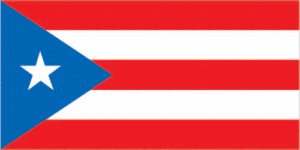(This article was sent to subscribers to RunawayInequality.org. If you would like to receive more content via email about inequality and how to reverse it, sign up here.)
How does Wall Street financially strip-mine a country, territory or state? It loans governments more and more money knowing that, no matter what, they have to pay it back — even if it means closing schools, cutting thousands of jobs and turning day-to-day life into misery for working people and the poor.

The US territory of Puerto Rico has run up massive debts (approximately $123 billion) in the last 15 years. Programs designed to help the island, such as tax breaks that encouraged pharmaceutical companies to set up factories there, at first benefited Puerto Rico, but when the breaks were rescinded in 2005, jobs and capital fled. (John Oliver explains what happened in an often profane and funny but clear description of the process, while Manuel Lin Miranda adds a song.)
With the loss of jobs, tax revenues collapsed, leading to more and more borrowing to fill the budget gap. Despite a crumbling credit rating, Puerto Rico had no trouble finding new loans, thanks to special tax rules dating back to 1917 that made the bonds of US territories triple-tax free.
“The 100-year-old law stipulates that no one — not any state, not any county or city, not the District of Columbia, not any other territories, not even Puerto Rico itself — can tax the interest that Puerto Rico pays its investors. This has spurred people with eyes on easy profits to dive in for decades,” the New York Times reported in May.
Investors also relied on a Puerto Rican constitutional requirement that the territory pay creditors before it spends money to provide government services, a promise the territory’s government recently could not keep. A struggling economy was pushed towards ruin, as the NY Times reported.
In the summer of 2016, Congress passed Promesa, a law that gave US territories a way to seek court protection from creditors. The idea was to help struggling territories reorganize their burdensome debt while making sure that the most deserving creditors moved to the head of the line. Puerto Rico sought protection in May of this year, but now a hedge fund, Aurelius Capital, is suing to reverse Promesa. A NY Times article from August explains the process.
There have been other problems over the years. While the multinational pharmaceutical companies created jobs, they also collected $477.5 million in wage subsidies from Puerto Rico, tapping a program intended to help farmers pay farmhands a higher wage, reports Common Dreams, because the US Department of Agriculture classified them as farmers. Yet those same companies were allowed to use far more land than other foreign farming companies because the Puerto Rican government didn’t consider them to be farms. The companies had advantages coming and going, while Puerto Rico struggled.
Hedge funds like Aurelius Capital bought up Puerto Rican debt for pennies on the dollar in recent years, and are now insisting on full repayment. Illinois and the US Virgin Islands are also weathering similar attacks from vulture hedge funds, textbook examples of how wealth is stripped from a company (or a territory) and shifted to enrich the wealthy.
Financial strip-mining by vulture hedge funds won’t stop until we build a movement to change the laws and stop it.
